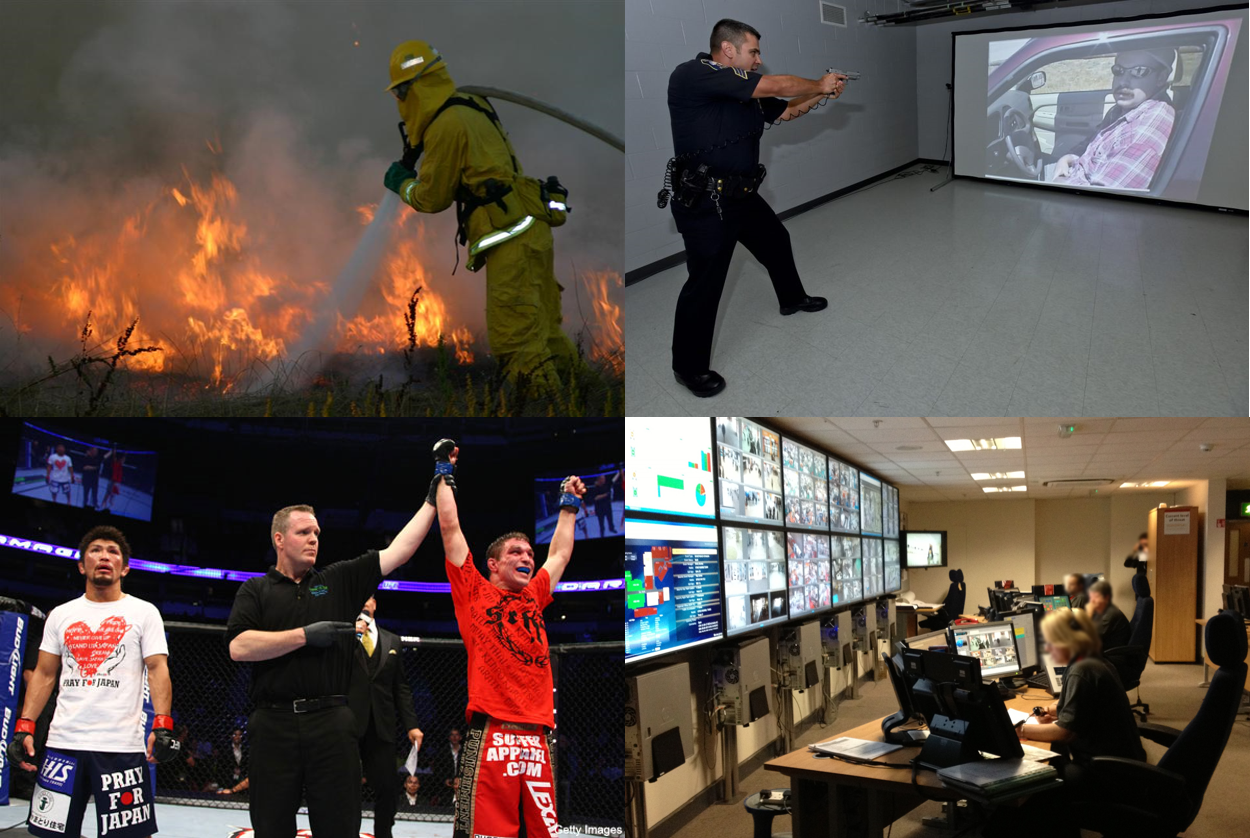Applied Cognition & Expertise (ACE) Lab
Introduction
The Applied Cognition & Expertise (ACE) lab investigates human performance and cognition in complex, dynamic, and often stressful operational settings. ACE seeks to identify and define expertise in operational settings, understand the perceptual-cognitive basis for expertise and skilled performance, and design and validate solutions to mitigate error, accelerate learning, and improve resilience. Some topics of current interest to the lab are human factors of firearms and forensic science, police decision making and use of force under stress, CCTV security surveillance monitoring, mixed martial arts (MMA) judging, and emergency medical service (EMS) decision making. Here are just a few examples of current interests:
- How can we get police officers to be more judicious in their use of force?
- What can be done to reduce the number of accidental discharges when people handle firearms? Learn about our current research project.
- How can a person monitoring a wall of closed-circuit TV (CCTV) cameras (e.g., in an airport or mall) monitor so many screens simultaneously?
- How do pilots use—and misuse—cockpit technologies (e.g., weather displays) to make decisions about their flight paths?
- Why are there so many serious injuries to fire fighters when responding to wildland fires?
- Why do Mixed Martial Arts (MMA) judges sometimes make poor decisions about who won a fight?
- Why do emergency medical service (EMS) personnel sometimes administer the wrong medication to patients?
The goals of the lab are to:
- Identify and define expertise in operational settings;
- Understand the perceptual-cognitive basis for expertise and skilled performance; and
- Design and validate solutions (e.g., decision aids, training protocols) to mitigate error, accelerate learning, and improve resilience.

We do this by:
- Identifying critical issues related to performance, safety, and training;
- Collaborating with subject-matter experts to gain insights into the individual, organizational, and societal factors that affect performance; and
- Applying psychological concepts and theories to answer specific research questions.
Some techniques we use:
- Cognitive task analysis techniques
- Eye tracking
- Simulator-based studies
- Field experiments
We like:
- Working directly with domain experts (e.g., police firearms and defensive tactics instructors, fire fighters);
- Getting out of the lab to learn about the complexities of operational environments; and
- Applying the scientific method to question often-unverified “accepted wisdom” (e.g., with respect to training methods)

Are you interested in pursuing a PhD in Human Factors? Great—we are looking for motivated, capable students! Do you have an interesting question or problem that you would like researched, but do not know where to start? Contact the ACE lab to inquire about pursuing a PhD in Human Factors or to discuss potential collaborations.
Faculty
Dr. Joel Suss
428 Jabara Hall
joel.suss@wichita.edu

